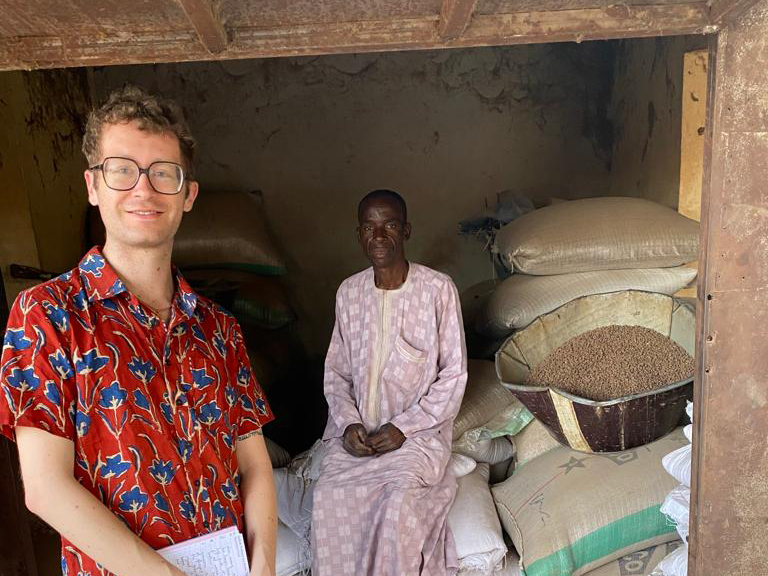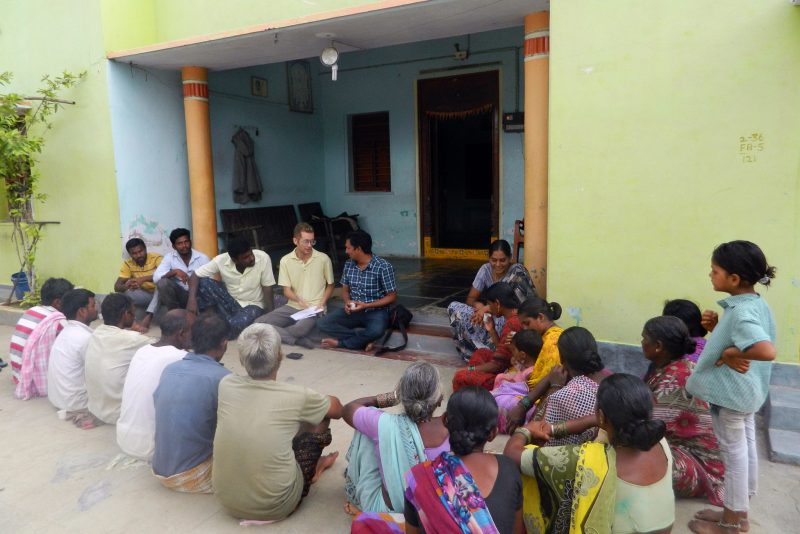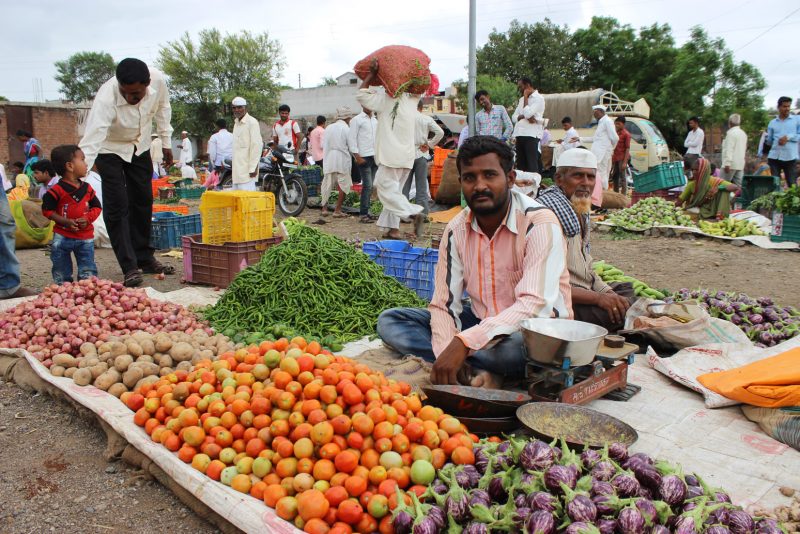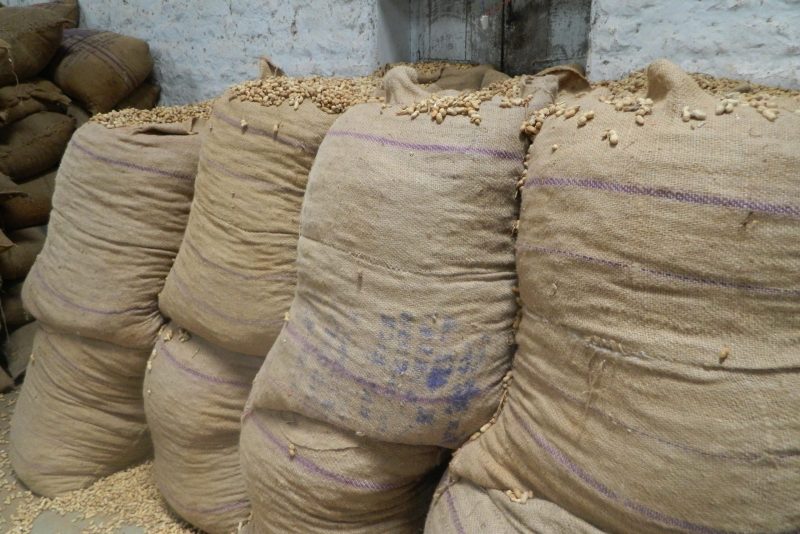Alum Helps Improve the Diets of the World’s Most Impoverished

Tata-Cornell Institute alumnus Anthony Wenndt is making a difference in the lives of the poor. In Africa and other parts of the world where malnutrition is a public health concern, he works to improve the nutrition outcomes of the programs of the Global Alliance for Improved Nutrition (GAIN). Wenndt credits his experience performing fieldwork while at TCI for helping him to be responsive to the needs and constraints faced by marginalized people.
Wenndt earned his PhD in plant pathology and plant-microbe biology from Cornell University in 2020. At GAIN, he works as the technical officer for reaching the very poor, supporting the organization’s cross-cutting priority of increasing the impact of programs on people living in poverty. Wenndt builds resources, strategies, and standards of practice that can help guide GAIN’s work. He has established an internal community of practice at GAIN that serves as a sharing space and learning hub for the organization as it seeks to embolden its efforts to improve the diets of people living in poverty.
“What excites me about this role is that I can support GAIN in being receptive to the needs of the very poor and nutritionally vulnerable communities—communities which, unfortunately, too often lack access to nutrition-supporting goods and services,” Wenndt said.
Wenndt also leads GAIN’s social protection program, which seeks to ensure that the organization’s social protection offerings (programs that reduce social and economic risk and vulnerability) are nutrition-sensitive, responding to the nutritional needs of beneficiaries, particularly the poorest of the poor and, among them, women and children. Wenndt works with diverse stakeholders, including governments, value chain actors, and social protection beneficiaries themselves in Nigeria and Ethiopia to understand how to best amplify beneficiaries’ voices in the design and implementation of social protection programs.
“I credit TCI with exposing me to the tools I required to examine the needs of communities from the perspective of vulnerable people themselves, using human-centered and participatory approaches,” Wenndt said.
A similar project is in development in Asia (including India, Bangladesh, Pakistan, and Indonesia), which aims to reinforce the capacity of social protection to respond to the specific nutritional needs of vulnerable communities through human-centered approaches, behavior change communication, and income generation opportunities. In India, GAIN has worked with the state government of Himachal Pradesh to ensure that all beneficiaries of the Public Distribution System have access to micronutrient-fortified wheat flour.
Wenndt is no stranger to incorporating community voices into programming. At TCI, he used context-sensitive, community-based participatory research methods to ensure that interventions met the specific needs of beneficiary communities. “My experience at TCI enabled me to develop essential skills to understand the needs and constraints faced by nutritionally vulnerable communities,” he said.
While performing field-based research on mycotoxin contamination in Unnao District, Uttar Pradesh, India, Wenndt mobilized more than 400 smallholder farmers and their families as a farmer research network, leveraging their common interest in grain preservation and mycotoxin management to develop and implement locally meaningful mitigation solutions in their villages. It is the first example of a formal food safety-focused farmer research network in India and constitutes an adaptable model for implementing community-based participatory food system interventions.
“I credit TCI with exposing me to the tools I required to examine the needs of communities from the perspective of vulnerable people themselves, using human-centered and participatory approaches,” Wenndt said. “I believe that impacting communities necessarily means including them and prioritizing their own perspectives. This is something that continues to inform and drive my approach to social protection and reaching the very poor at GAIN.”
Featured image: At GAIN, Anthony Wenndt on projects across South Asia and Africa. (Photo provided by Anthony Wenndt)





